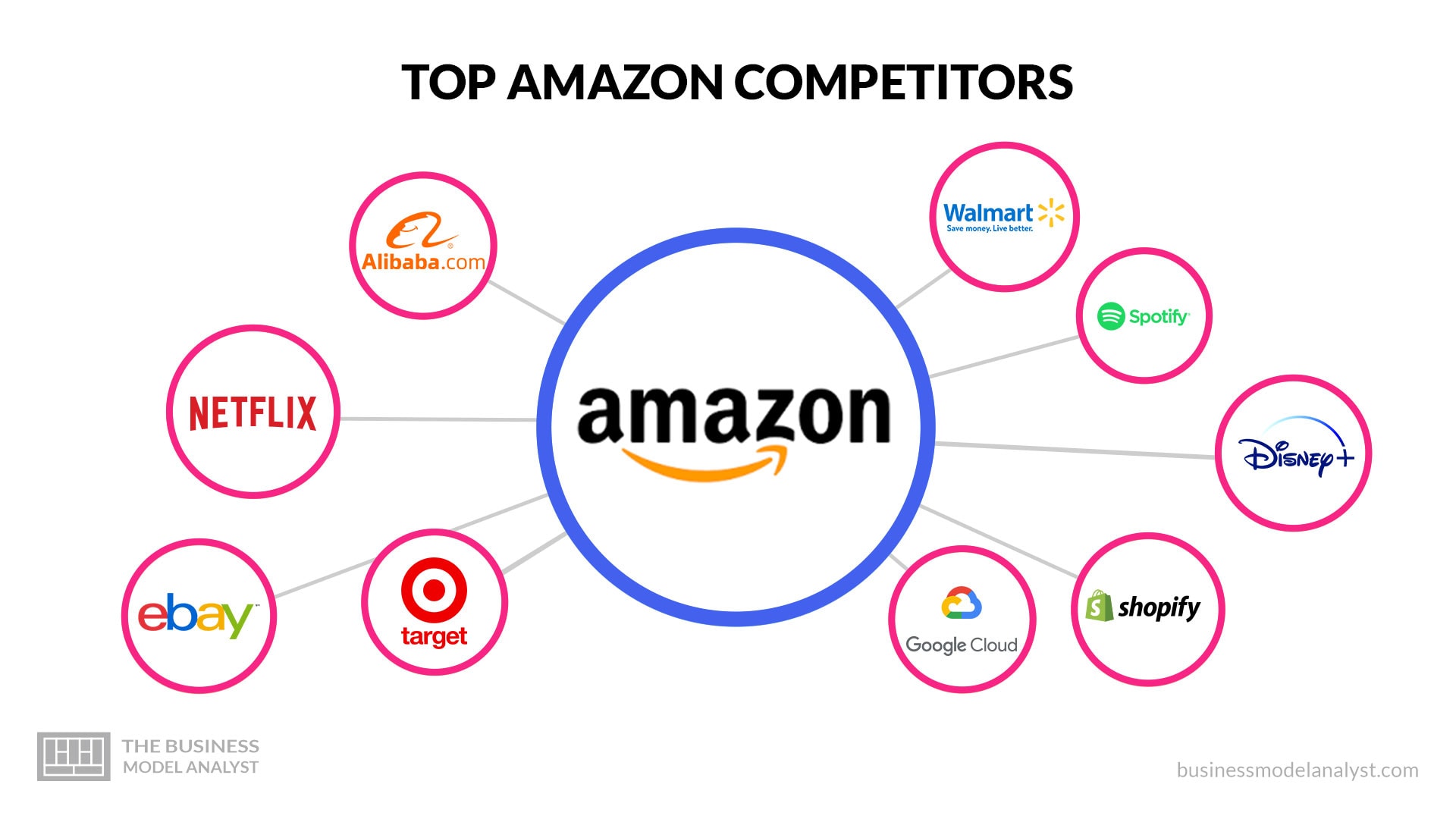Amazon's Covert Operation "Big River": Uncovering the Secrets of Corporate Espionage in E-commerce
The scope of Big River's operations extended beyond merely gathering intelligence through sales. Amazon employees were tasked with taking detailed notes on competitors' logistics and payment services, which were subsequently used to refine Amazon's own strategies.

In the fiercely competitive world of e-commerce, Amazon has long been known as a trailblazer, constantly pushing the boundaries of innovation and market dominance. However, a recent revelation about the company's covert operation, codenamed "Big River," has shed light on the controversial tactics employed by the tech giant to maintain its competitive edge. This article dives into the secretive world of Amazon's Big River operation, exploring its objectives, methods, and the ethical implications of such practices in the corporate landscape.

The Birth of Project Curiosity
Amazon's Big River operation traces its roots back to 2015 when the company initiated a clandestine project called "Project Curiosity." The primary objective of this project was to gather intelligence on Amazon's competitors by establishing a subsidiary named Big River Services International. This subsidiary would operate undercover, selling products on rival platforms such as eBay, Walmart, and Shopify, allowing Amazon to gain valuable insights into the pricing strategies, logistics, and business practices of its competitors.

The Modus Operandi of Big River
Big River Services International presented itself as an independent entity, engaging in e-commerce under various brand names such as Rapid Cascade and Svea Bliss. The operation was highly secretive, with employees using non-Amazon email addresses for external communications and switching to Amazon emails for internal discussions. This allowed them to maintain a low profile and avoid drawing attention to their affiliation with the tech giant.
To gather intelligence, Big River employees attended competitors' conferences and meetings, posing as independent sellers. They refrained from disclosing their connection to Amazon, enabling them to access sensitive information that would otherwise be unavailable. The collected data was then discreetly shared with Amazon executives through printed, numbered reports instead of digital formats to minimize electronic traces.
)
Beyond Sales: Gathering Logistics and Payment Intel
The scope of Big River's operations extended beyond merely gathering intelligence through sales. Amazon employees were tasked with taking detailed notes on competitors' logistics and payment services, which were subsequently used to refine Amazon's own strategies. This allowed the company to identify areas where it could improve its own processes and gain a competitive advantage.
The Legal Implications of Big River
The secretive nature of Big River's operations raises significant legal concerns. Experts suggest that Amazon's actions could potentially expose the company to corporate or industrial espionage lawsuits. The line between legitimate competitive intelligence gathering and unethical or illegal practices can be blurry, and Amazon's Big River operation appears to have ventured into a gray area.

Amazon's Defense: Benchmarking or Espionage?
In response to the revelations about Big River, Amazon has defended its actions by describing them as benchmarking—a common practice where companies compare their processes and performance with those of their competitors. Benchmarking is widely accepted as a legitimate business strategy, allowing companies to identify best practices and areas for improvement.
However, the extent and secretive methods employed by Big River go beyond typical benchmarking practices. The use of covert operatives, the creation of a separate subsidiary, and the deliberate concealment of Amazon's involvement suggest that the company was engaging in activities that push the boundaries of ethical competitive intelligence gathering.

The Ethics of Corporate Espionage
The case of Amazon's Big River operation raises important questions about the ethics of corporate espionage in the modern business world. While gathering competitive intelligence is a common practice, the methods employed by Amazon have sparked a debate about the acceptable limits of such activities.
On one hand, proponents argue that in a fiercely competitive market, companies must leverage every available resource to stay ahead of the curve. Gathering insights into competitors' strategies and practices can help companies make informed decisions, innovate faster, and ultimately benefit consumers by driving down prices and improving services.

On the other hand, critics contend that the secretive and deceptive nature of operations like Big River crosses an ethical line. By actively concealing its identity and intentions, Amazon may have violated the trust of its competitors and the broader e-commerce community. Such practices can create an atmosphere of suspicion and erode the overall integrity of the industry.
The Importance of Transparency and Fair Play
As the Big River story unfolds, it serves as a reminder of the importance of transparency and fair play in the business world. While competition is the driving force behind innovation and progress, it is crucial for companies to operate within the bounds of ethical behavior and respect for their competitors.
Engaging in covert operations, such as creating fake subsidiaries or infiltrating competitor meetings under false pretenses, undermines the principles of fair competition. It can lead to a breakdown of trust within the industry and ultimately harm consumers by stifling genuine innovation and collaboration.

The Need for Clearer Guidelines and Regulations
The case of Amazon's Big River operation highlights the need for clearer guidelines and regulations surrounding competitive intelligence gathering. While some practices, such as benchmarking, are widely accepted, there is a lack of clear boundaries defining what constitutes ethical behavior in this context.
Policymakers and industry leaders must work together to establish a framework that promotes fair competition while preventing unethical or illegal practices. This could involve setting standards for transparency, data protection, and the use of third-party intermediaries in gathering competitive intelligence.
The Future of Competitive Intelligence in E-commerce
As e-commerce continues to evolve and grow, the importance of competitive intelligence will only increase. Companies will continue to seek ways to gain an edge over their rivals, and the temptation to engage in covert operations like Big River may persist.
However, the long-term success and sustainability of the e-commerce industry depend on fostering a culture of trust, transparency, and fair play. Companies that prioritize ethical behavior and focus on genuine innovation and customer value are more likely to thrive in the long run.

Lessons Learned from Big River
The revelation of Amazon's Big River operation serves as a wake-up call for the e-commerce industry. It highlights the need for companies to reassess their competitive intelligence practices and ensure that they are operating within the bounds of ethical behavior.
Some key lessons that can be drawn from this case include:
- Transparency is crucial: Companies should strive to be transparent about their competitive intelligence gathering practices and avoid engaging in deceptive or covert operations.
- Respect for competitors: While gathering competitive intelligence is important, companies must respect their competitors and refrain from engaging in practices that undermine trust and fair play.
- Focus on innovation: Rather than relying on covert operations to gain an edge, companies should focus on driving genuine innovation and delivering value to their customers.
- Collaboration and knowledge sharing: The e-commerce industry as a whole can benefit from greater collaboration and knowledge sharing among companies. By working together to establish best practices and standards, the industry can promote fair competition and drive progress.

Conclusion: Prioritize Ethics and Transparency
Amazon's Big River operation has shed light on the secretive world of corporate espionage in the e-commerce industry. While the company defends its actions as benchmarking, the extent and nature of the operation raise significant ethical concerns.
As the industry continues to evolve, it is crucial for companies to prioritize transparency, fair play, and genuine innovation. By establishing clear guidelines and fostering a culture of trust and collaboration, the e-commerce sector can thrive and deliver greater value to consumers.
The Big River story serves as a cautionary tale, reminding us of the importance of upholding ethical standards in the pursuit of competitive advantage. As we navigate the challenges and opportunities of the digital age, let us strive to build an e-commerce landscape that is driven by integrity, innovation, and a commitment to creating value for all stakeholders.




